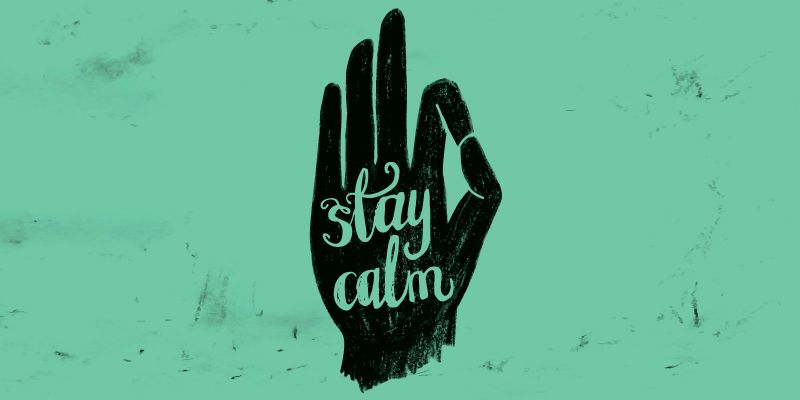It is well established that an entrepreneur’s journey is no cakewalk. Hurdles and challenges along the way are not just limited to zeroing on an idea, scouting for the right candidates, building a team, sourcing capital, raising funds and building the product or service. The journey towards a successful startup also involves roadblocks like dealing with conflicts, rejections, and criticisms.
Entrepreneurship 101 is a series to address these ‘human’ aspects of being an entrepreneur. Through this series, YourStory shares ideas, opinions, suggestions, references, and examples that will help you reflect and tread the entrepreneurial path smoothly.
Last week, we dealt with the challenges of building inner resilience here, and provided resources that can help you build inner strength here. Today, we deep dive into another checkpoint in the entrepreneurial route — criticism.

Image source: Shutterstock
When confronted with criticism, here are a few things to keep in mind:
Do not take it personally
First and foremost, do not take criticisms personally. If you start a business, chances are you will face countless rejections and criticisms before ultimately getting one pat on your back. Constructive criticism, aimed at helping you better, is rarely aimed at you and usually comes from a place of concern.
While it is advised to not take criticisms personally, one must definitely take them seriously. They are only an indication to try again, and try better.
“The trick to coping is to realise that even the most stinging critique can help you grow your business sometimes. One has to evaluate criticisms for the information they hold, take calculated decisions on what needs to be done, and put negative feedback in the past to move on. It is important that we give time to reflect on our business and take manageable steps to solve problems in a profitable manner,” says Cyrus Benjamin, Founder and CEO of B2B online manufacturing startup WorksArea.
Criticisms are re-directions
Sometimes criticism is just a roadblock in your usual path. When you meet a fallen tree on your way to some place, you do not reverse your car and head back home. You take a detour. The new route may take longer than usual, but you do ultimately reach your destination. Therefore, think of criticism as a redirection to fix what is wrong with your product or service.
For Priyanka Madnani, Founder and CEO of Easy to Pitch, her biggest turning point was criticism. When Priyanka created a 20-slide pitch deck for her earlier venture Cheapest and Nearest, she shared the deck with 10 investors. When one of them got back to her with feedback and criticism on her deck, Priyanka took a three-month break to understand the nuances of creating a deck and pitching it to investors. Once she was confident about the ins and outs, Priyanka ultimately started Easy to Pitch, a women-led startup for pitching solutions.
Criticisms are not the end of the world. “While criticisms are temporary, learnings are permanent,” says Shrijay Sheth, Founder of legaltech platform LegalWiz.in.
Being an entrepreneur whose startup operates round the clock, Shrijay faces criticism almost on a regular basis. However, he takes criticism as something which is transient in nature.
“Criticisms test your nature — you either sink or swim…They are an indication to go back to the drawing board, to rework on your proposal or terms, and try again,” Shrijay added.

Learn to differentiate between criticism and unsolicited advice
While constructive criticism can help you improve your product/services, continuously entertaining criticism may lead onlookers to believe that they can share all their unsolicited advice with you.
More importantly, you should not modify your product or service based on every criticism that you get. That is, do not make the mistake of diluting your product to please someone.
Jitin Bhatia, Founder of social media app Explurger, believes, “We don’t need all to agree with what we are doing. We only need a few who could align with our vision and believe in us.”
Habits to nurture to better deal with criticism
Develop the ‘perfect balance’
As mentioned already, it is very crucial to develop a perfect balance. You should know when to take criticism as an indicator of improving things, and not let the rest affect you. Therefore, startup founders should have a
“Two-fold approach of being thick-skinned or perceptive, as the situation calls for,” says Shrijay.
Additionally, Jitesh Lalwani, Founder of USA-based quantum computing startup Artificial Brain, is of the opinion that handling criticism is more of an art than a science. He said that while a founder should be open to receiving criticism, whether or not to implement their suggestions depends on one’s power of making sound judgements.
Practice calmness
Sometimes people enjoy throwing at you unsolicited advice in order to change you or your intentions. Be mindful of these people and try to understand their intentions behind such behaviour. To do so, you must not react to every criticism thrown at you. Practice remaining calm when all one tries to do is stir your mental peace. When it is difficult to understand what to do with unsolicited advice, it is better to take a step back and understand where the advice is coming from.

Be open to communications
When receiving too many pieces of suggestions from one person, you may get frustrated and cut that person off from your life altogether. While dismissing their advice may seem like the perfect way out, in situations like these, practice patience and hear them out without letting what they advise affect your course of action.
“The same person might later become your client or customer,” suggests Shrijay. For this, it is important to build self-control and inner strength.
Stay true to yourself
Hundred people can provide you with 200 different ideas. In fact, some of them will even make sense and it may improve your product or service offerings. For others, it is better to not put any thoughts into them. At the end of the day, you start a business because you feel strongly about it – whether it is a product, or service, or a market gap that you’re trying to bridge.
So, remain true to your own intentions and believe that you are moving into the right direction. Success may meet some overnight, for others, it may take multiple pivots, tweaks and years. Being objective and professional in the face of criticism is extremely necessary and important.
Udbhav Rai, Co-founder of freight visibility and fleet management platform FleetX, says, “The plans and tasks in your pipeline should not change based on criticisms. It almost certainly leads to frustrations as these decisions are not based on data.”

Tips for aspiring entrepreneurs
YourStory asked a couple of entrepreneurs about advice they would like to share with aspiring startup founders. Here’s what they had to say:
- “Follow the ‘Duck Approach.’ Let criticism roll off you, like water off a duck's back. Just how ducks appear calm on the outside while paddling furiously under the water, try and learn what you can from the criticism.” - Shrijay Sheth, Founder of LegalWiz.
- “Do not worry about people not agreeing with your vision all the time. As a startup founder, you will hear a lot of ‘no’s from customers and investors, before you ultimately hear a ‘yes’.” - Jitin Bhatia, Founder of Explurger.
- “Stay true to your goals, only customers or users, and sales numbers will provide true criticism.” - Udhav Rai, Founder of FleetX.
- Aishwarya Jain, Founder of I’m Happiness, a startup that aims to help people increase their cognitive fitness, suggests and follows:
- Journaling negative emotions.
- Taking a pause to reflect whenever one faces criticism or rejections.
- Talking to someone you are close with to remove the heaviness, and to get rid of the baggage of pain for future criticisms.
- Training the mind to not take any criticism personally.
Edited by Saheli Sen Gupta
